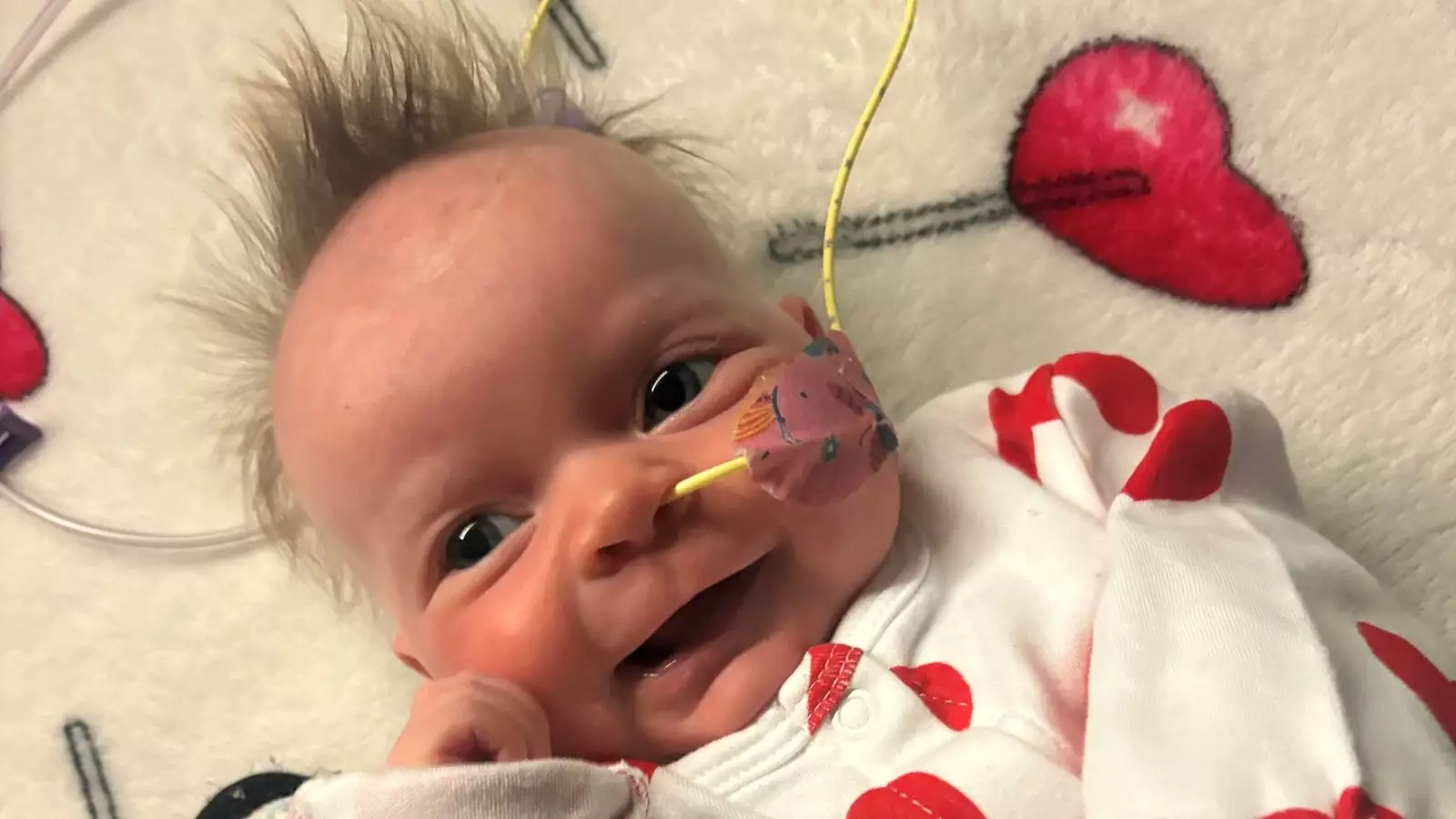In a heart-wrenching narrative that embodies the struggle many families face in the battle against rare medical conditions, the story of three-month-old Dolcie-Mae Edwards-Raymond from Newport, South Wales, underscores the urgent need for stem cell donations. Diagnosed with hemophagocytic lymphohistiocytosis (HLH), a serious disorder that causes the body’s immune system to attack its own tissues, Dolcie-Mae’s family finds themselves in a race against time. This young girl’s ordeal began with what doctors initially thought was a viral infection, as she struggled to gain weight in her first few months of life. This misdiagnosis highlights a broader concern in the medical community: the importance of timely and accurate diagnosis, particularly for conditions that are both rare and severe.
The diagnosis of HLH is often complicated, and in Dolcie-Mae’s case, the emotional toll on her parents, Courtney-Jade Edwards and Ashley David Raymond, is palpable. They were left devastated upon learning that their daughter’s own immune system was attacking her body. This moment of realization not only robbed them of the joy of parenthood but also threw them into a world filled with uncertainty and fear. The emotional distress of such a diagnosis cannot be overstated, as families grapple with feelings of helplessness and despair while navigating the medical system.
Dolcie-Mae’s situation serves as a poignant reminder of the significance of stem cell donations. Following her diagnosis, she was airlifted to the Royal Victoria Infirmary in Newcastle, where she continues to receive specialized care. In such dire circumstances, families often find themselves appealing to the community for help. In this case, Courtney-Jade is urging individuals between the ages of 16 and 30 to sign up for the Anthony Nolan stem cell register. The message is clear: by joining the register, potential donors could provide a lifeline to Dolcie-Mae and others like her who are battling life-threatening conditions.
The implications of this call to action transcend individual cases. Each new registration on the stem cell donor list is a beacon of hope not just for Dolcie-Mae, but for thousands of patients facing similar health challenges. The process of finding a suitable donor can be daunting and unpredictable, making the community’s role in supporting these efforts absolutely vital. As the family articulates their plight, it becomes evident that no family should have to confront such a harrowing experience alone.
To provide context to Dolcie-Mae’s story, it’s essential to delve deeper into HLH itself. This condition can be categorized into primary and secondary forms. Primary HLH is typically inherited and impacts infants, while secondary HLH is associated with infections and generally manifests in older children and adults. The complexity of this disorder and its varying presentations necessitate a high level of awareness not just among medical professionals, but also within the general public. By educating more people about HLH, we can increase the chances of early diagnosis, thereby improving outcomes for affected patients.
Furthermore, the emotional and psychological aspects of dealing with such a diagnosis should not be overlooked. The fear of the unknown and the constant anxiety about a loved one’s health can be overwhelming for families. Organizations like Anthony Nolan play a crucial role in not only providing support but also in fostering a greater understanding of blood disorders. Their efforts to recruit donors to the stem cell registry are vital for creating a robust network of hope for those in need.
As we reflect on Dolcie-Mae’s journey and that of her family, it is imperative to acknowledge the collective responsibility we share in raising awareness and encouraging donations. The urgency of Courtney-Jade’s appeal is a call that resonates deeply with anyone who values life. We must rally together as a community, extending our compassion and solidarity to families navigating similar challenges. By signing up for the stem cell register, individuals can transform their concern into action—potentially saving lives and making a tangible difference in the community. Dolcie-Mae’s story reminds us that every effort counts, and together, we can cultivate hope even in the darkest of times.


Leave a Reply